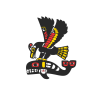For Immediate Release
Cowichan Watershed Board Warns of Critical Drought Conditions
Duncan, BC – The Cowichan Watershed Board (CWB) is warning of low summer river flows, warming water temperatures, and declining water quality in the Cowichan River this summer. These circumstances mirror those of 2023, where over 100,000 fish died due to poor habitat conditions.
“Quw’utsun Mustimuhw (Cowichan citizens) know that everyone and everything is connected – Mukw’ stem, ‘i’ mukw’ Ihwet, ‘o’ slhilhukw’tul’. The importance of caring for the lands, waters, plants, and animals within our territory has been ingrained in the snuw’uy’ulh (teachings) passed down by our Sul-hween (Elders) for generations,” said Cowichan Tribes Chief Cindy Daniels (Sulsulxumaat). “Our Lulumexun (Lands and Natural Resources) staff have been closely monitoring conditions on the Quw’utsun Sta’lo’ and, over many weeks, have contributed valuable knowledge and advocacy for the recent decision to close the fishery early. We take our guardianship responsibilities seriously to protect the river, the fish, and other species that depend on it.”
Cowichan Valley Regional District Chair Kate Segall notes “the CVRD is committed to maintaining healthy watersheds and aquifers across the region. The effects of climate change are being felt in the Cowichan as summer droughts are affecting the health of our environment and our communities. The CVRD supports the efforts to raise the Cowichan Lake weir to increase our resilience to climate change.”
What the Data Shows
The Quw’utsun Sta’lo’ (Cowichan River) is currently being monitored by a system that has been called the best in the country, with data being collected continuously (24/7) at six different locations. A highly skilled coalition of experts, including Fisheries and Oceans Canada, BC Ministry of Water, Land and Resource Stewardship, Cowichan Tribes, Cowichan Valley Regional District, BC Ministry of Environment, the Town of Lake Cowichan, Cowichan Watershed Board, local knowledge holders, and special advisor, Dr. Ken Ashley, an internationally recognized fish and water quality scientist, is meeting regularly to review the data and respond to emerging conditions with the best tools available. This information is supplemented by river flow data provided through a Water Survey of Canada partnership with Domtar, the current owner and operator of the Cowichan Lake weir.
The latest data is trending towards river conditions similar to those of 2023, with rising temperatures and significant daily fluctuations in pH and dissolved oxygen levels. Combined, these factors can be lethal to fish and other aquatic life.
What’s Being Done
The coalition is implementing emergency measures to safeguard the Cowichan River’s aquatic life. Key actions currently in effect include:
- Town of Lake Cowichan wastewater effluent inputs to the river have been reduced to half, with releases happening overnight in an attempt to reduce algae growth
- Conserving lake water by reducing spring flows from the weir in an attempt to maintain higher summer baseflows
- Implementation of early fishing closures to reduce stress on fish populations
- Conducting field research to identify, protect and improve “cold water refugia” areas, which are extremely important to fish during warm water conditions
While every available action is being utilized, without rain or cooler temperatures, it may not be enough.
Long-Term Solutions
Climate change is making droughts more frequent and more severe. The CWB stresses the urgent need to raise the Cowichan Lake weir to store more water. Maintaining higher water flows throughout the summer would provide better habitat conditions for fish, including access to shady riverbank areas and dilution of sewage effluent. Planning is in progress for a new weir at Cowichan Lake. Learn more at cowichanlakeweir.ca.
How the Public Can Help
“This is an all-hands-on-deck moment for the Quw’utsun Sta’lo’ and other rivers in our region,” said Danielle Paydli, Executive Director of the CWB. “Every action—no matter how small—helps protect the rivers and life that depend on them.”
- Report distressed fish to DFO’s 24/7 hotline: 1-800-465-4336 or [email protected]
- Report pollution to BC’s RAPP line: 1-877-952-7277 or forms.gov.bc.ca/environment/rapp
- Conserve water. Limit outdoor use, the largest source of residential water use
- Avoid swimming in the river during low flows to avoid damaging fragile habitats
Media Contact:
Tom Rutherford, Strategic Priorities Director, Cowichan Watershed Board
Cell/Text: 250-815-5930
Email: [email protected] or [email protected]
Resources:
- Cowichan Lake Weir Project: cowichanlakeweir.ca
- Cowichan Watershed Drought Response projects: cowichanwatershedboard.ca/drought-response/
Download a copy of the media release here.

 Email
Email



